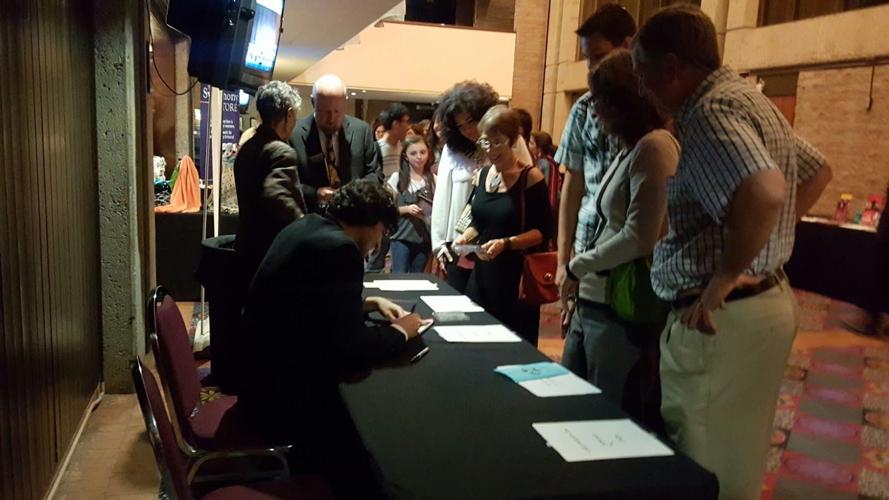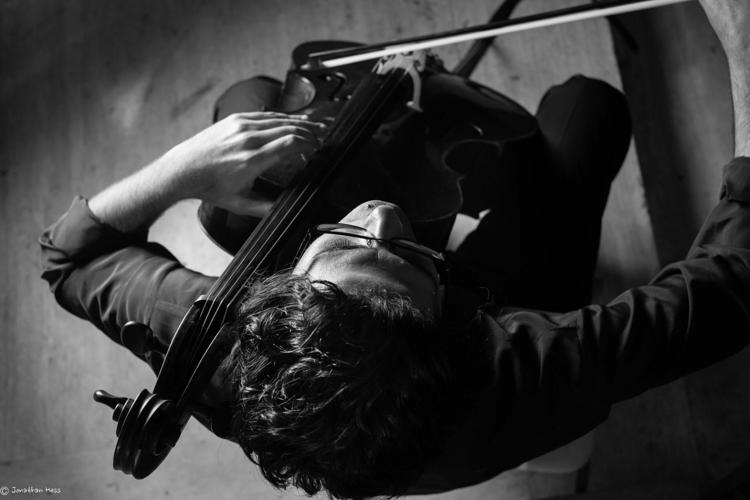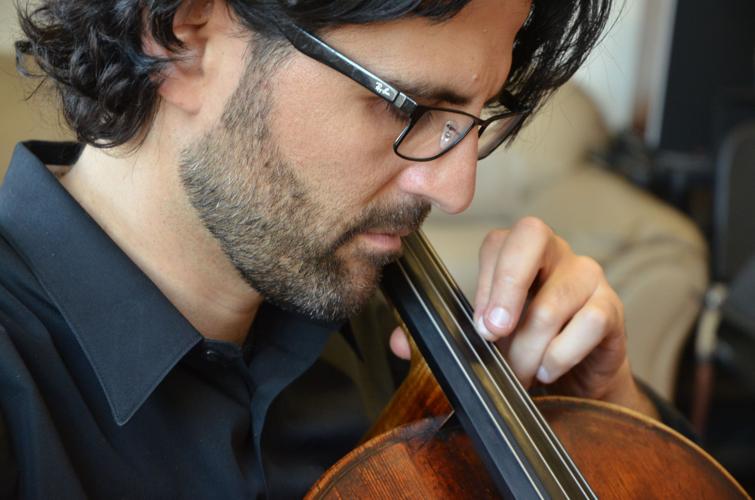It's not often that Tucson gets to be first when it comes to classical music.
New York, Chicago, Los Angeles — the major American cities with bigger footprints in the classical music landscape — usually own the "first" footnote.
But on Thursday night, Israeli-American cellist Amit Peled gave us a first: the first time he performed Elgar's Cello Concerto on Pablo Casals' storied instrument.
Thursday night 's special Tucson Symphony Orchestra concert, "The Casals Cello," was the first time the TSO has performed the Elgar since 1988 — long before some in the audience had been born. Dozens of kids and teens, many of them presumably cello students, were among the 1,300 people loosely filling Tucson Music Hall.
And as far as a first time goes, Thursday was one those young folks will remember for years to come.
Peled's performance went beyond the realms of flawless technical precision to a dreamy netherworld. He played vibrato notes that hung in the air delicate as a feather, then forcefully strummed the strings in between bowing. His pizzicato was commanding, but never brusque.
The terrific warmth the cello exuded was exciting and breath-stealing from the lowest register to the highest. Peled's fingers danced along the fingerboard at breakneck speeds as he plucked and strummed and bowed the cello, at times fiercely muscular. And not once did he scrape the strings with his bow or hands, creating that all-too-human echo that whispers in between notes when a musician gets that passionately tangled up in their playing.
Peled was so in tune with the Casals cello that it was sometimes hard to tell where the instrument ended and the man began.
The audience gave Peled a standing ovation and he gave them an emotionally charged encore of "Prayer" from Ernest Bloch's "Jewish Life." And when he took his final bow, he bowed to the instrument, on loan to him from Casals' widow, as well as the audience, acknowledging that it was an equal partner to his success Thursday night.
Peled found another partner in guest conductor José Luis Gomez, one of the nine candidates vying to become the next TSO music director.
Gomez, making his second TSO appearance since he debuted last October, drew out the Elgar's moments of quiet anguish and resignation. The piece, Elgar's final composition for orchestra, reflected on the composer's heart ache at the damage wrought from World War I. It has moments of evident frustration, which Gomez brought to life with string playing that flowed seemlessly from exciting bursts to introspective calm, and performances from the winds and brass that pulsed with excitement, then exhaled as if they were surrendering to the realization that all is not better in the world.
Gomez opened the evening with Mendelssohn's overture to his "The Fair Melusina," an emotionally charged work that starts with lovely swaying strings and the gentle pulse of flute, erupts in an emotional torrent then returns to the toe-tapping opening theme.
Gomez led the orchestra in a balanced and exciting reading of Schumann's Symphony No. 3 "Rhenish" in the second half. Throughout the conductor and orchestra were so intrinsically in sync that they seemed like that long-married couple that finishes one another's sentences. By the end of the symphony, Gomez needed only shrug a shoulder or turn toward the musicians to get them to respond with glorious results.
Gomez returns to the TSO Feb. 19 and 21 for "Fountains of Life: Respighi & Strauss," featuring TSO Concertmaster Lauren Roth on Bruch's Violin Concerto No. 1.






